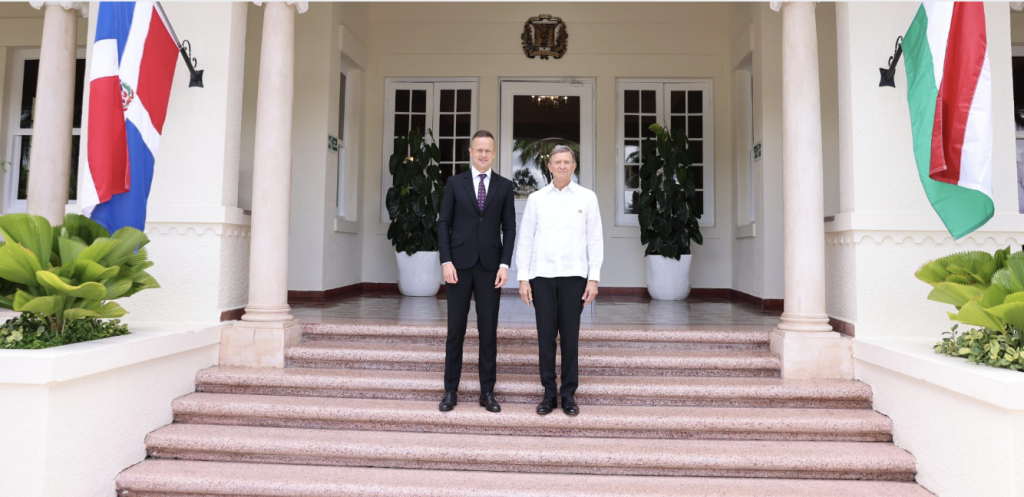
Hungarian Foreign Minister Péter Szijjárto visited last week to strengthen diplomatic and cooperation ties between both countries. Foreign Minister Roberto Álvarez hosted his colleague, Minister of Foreign Affairs and Trade of Hungary, Péter Szijjárto. Szijjárto has been in the position since 2014.
Szijjárto’s visit is the first in 40 years of bilateral diplomatic relations. The Ministry of Foreign Relations reported the ministers held discussions on their perspectives and positions on a variety of issues on the global agenda, including national security challenges, such as irregular immigration and international policy.
The ministers advocated the defense of multilateralism as an indispensable resource for dialogue and the search for peace among peoples and agreed to continue working together in the different spaces provided by the United Nations system.
The Ministry of Foreign Relations says the visit laid the foundations for strengthening bilateral trade and tourism and attracting investments to the Dominican Republic. Six bilateral agreements were signed on higher education, exchange between diplomatic academies, cooperation in water management, visa exemption for diplomatic and official passports, political consultations, and cooperation in trade and productive chains.
Bilateral relations between the Dominican Republic and Hungary were established through the signing of a joint statement on 27 July 1984.
As reported in Daily News Hungary, Szijjárto said that Hungary and the Dominican Republic have formed “an alliance to protect their citizens against the hazards of illegal migration” in the face of “hypocritical international pressure”.
“While the international liberal mainstream says that migration is good and only has beneficial effects … we who directly face the challenges … know that migration poses a danger rather than opportunities, and could seriously impact national security,” the Daily News reports quoting Péter Szijjártó.
Migration poses security risks such as “an increase in the threat of terrorism, spreading organised crime, a proliferation of drug trafficking or, as seen in Western Europe, the emergence of parallel societies,” Szijjártó said, calling for international cooperation on the part of “countries that directly face the dramatic effects of illegal migration”. “Migration is not a human right … a human right for everybody is that they should be ensured a peaceful and secure life in their own country,” he said.
Read more:
Ministry of Foreign Relations
Daily News Hungary
22 April 2024

